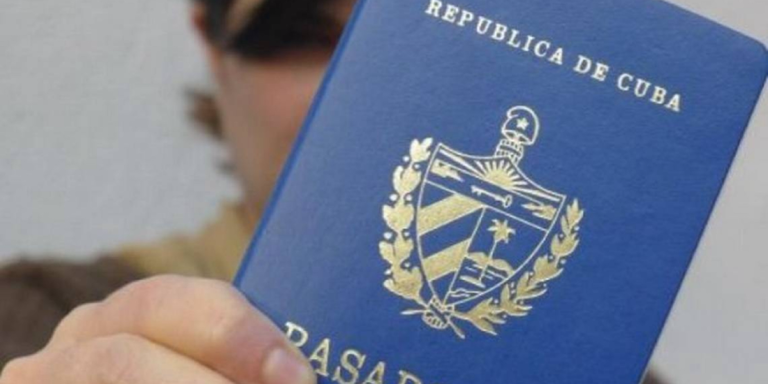
DHS announces September 2025 deportation timeline following controversial May Supreme Court decision ending humanitarian parole programs
New York, N.Y. – The United States has resumed deportations of Cubans with final removal orders, marking a dramatic shift in immigration policy that has sent shockwaves through Cuban-American communities across the nation, particularly in South Florida.
The Department of Homeland Security (DHS) announced on June 27, 2025, that it will begin deporting Cuban nationals who have exhausted all legal avenues to remain in the United States. This decision follows a controversial Supreme Court ruling in May 2025 that upheld the Trump administration’s authority to terminate humanitarian parole programs for Cubans, Haitians, Nicaraguans, and Venezuelans.
Policy Reversal Ends Decades of Preferential Treatment
The new policy represents a significant departure from decades of preferential treatment for Cuban immigrants under policies like the Cuban Adjustment Act.

The Supreme Court’s 6-3 decision allows the federal government to end parole programs that were established in 2023 under the Biden administration.
This would potentially affect thousands of Cuban nationals currently living in the United States.
“This decision fundamentally alters the landscape of U.S.-Cuba immigration policy,” said immigration attorney Maria Rodriguez, who represents dozens of affected families in Miami.
“We’re seeing the end of an era that recognized the unique political and humanitarian circumstances facing Cuban migrants.”
The DHS estimates that approximately 30,000 Cubans will be initially targeted for deportation when the program begins in September 2025.
Many of these individuals arrived through the Biden administration’s parole program, which facilitated legal entry but did not guarantee permanent immigration status.
Cuba’s Deteriorating Conditions Raise Concerns
Critics of the deportation policy point to Cuba’s ongoing economic and political crises as evidence that returning Cuban nationals to their homeland could expose them to persecution and hardship.
The island nation continues to face severe power outages, economic collapse, and increasing political repression.

The U.S. Embassy in Havana has issued repeated warnings about human rights abuses and the deteriorating situation for ordinary Cuban citizens.
Recent reports from human rights organizations document increased arrests of political dissidents and restrictions on basic freedoms.
“Sending people back to Cuba right now is essentially condemning them to suffer under an authoritarian regime that has only gotten worse,” said Carlos Hernandez, a Cuban-American activist in Miami.
“The economic situation is dire, and anyone who has been in the United States could face retaliation from the government.”
South Florida Communities Face Family Separations
The impact of the deportation policy is being felt most acutely in South Florida, home to the largest Cuban-American population in the United States.

Families are grappling with the prospect of separation, while community leaders worry about the loss of economic contributions from affected individuals.
In Miami’s Little Havana neighborhood, community organizations are working overtime to provide legal assistance and emotional support to families facing deportation.
Local businesses, many of which employ recent Cuban arrivals, are also concerned about the economic impact.
“These are people who have built lives here, who contribute to our economy and our community,” said Ana Martinez, director of the Cuban American National Foundation. “Tearing families apart serves no one’s interests and goes against our values as Americans.”
Implementation Strategy Encourages Voluntary Departure
The DHS has outlined its implementation strategy, encouraging affected individuals to use the CBP One mobile application to arrange voluntary departures from the United States.

The department is offering incentives such as travel assistance and streamlined processing for those who choose to leave voluntarily rather than face forced removal.
Immigration officials say the voluntary departure option is designed to reduce the trauma and costs associated with forced deportations while ensuring compliance with removal orders.
However, advocacy groups argue that the choice between voluntary and forced departure is no choice at all when the destination is a country experiencing severe humanitarian crises.
Widespread Criticism from Advocacy Groups
Amnesty International USA and other human rights organizations have condemned the deportation policy as “inhumane” and “dangerous.”
They argue that returning Cuban nationals to their homeland violates international principles of non-refoulement, which prohibit sending people back to countries where they face persecution.
Social media platforms have become a rallying point for critics of the policy.
Users like @CubaLibreNow have called for the restoration of protective measures, while others share stories of affected families and organize community support efforts.

“This policy fails to recognize the fundamental human rights principles that should guide our immigration system,” said Jennifer Martinez, a spokesperson for Amnesty International USA.
“We’re calling on Congress and the administration to reconsider this dangerous precedent.”
The controversy over Cuban deportations reflects broader debates about U.S. immigration policy and the balance between enforcement and humanitarian concerns.
As September approaches, affected families and advocacy groups are mobilizing legal challenges and political pressure to halt or modify the deportation timeline.
The Department of Homeland Security plans to begin deporting Cuban nationals with final removal orders in September 2025, following a Supreme Court ruling that ended humanitarian parole programs.
South Florida’s Cuban-American community fears family separations and persecution risks, as Cuba faces severe economic and political crises. Advocacy groups condemn the policy as inhumane and dangerous.
U.S. Resumes Cuban Deportations After Supreme Court Ruling (June 30, 2025)